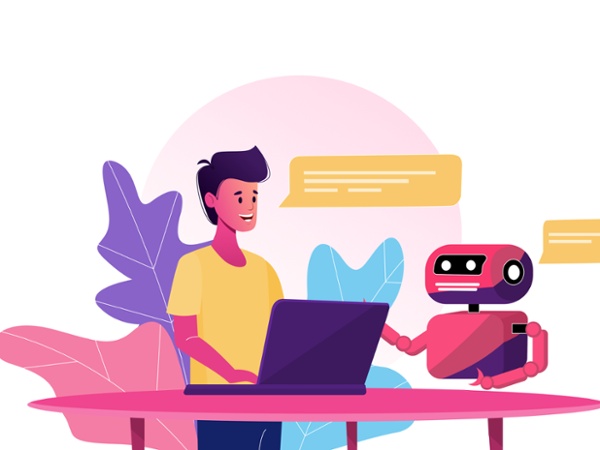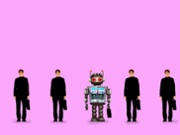|
Top Story
Good morning!
A good company culture isn't just an ideal to live up to, but something organizations must work to improve on an ongoing basis. Pushing culture improvement down on the to-do list can cause talented employees to leave, decreasing innovation. How is the morale at your company? Let me know!
Also in this issue:
🔓 Updates on the WorkDay breach
💸 Dayforce may sell
🧑💼 Return-to-office mandates for Ottawa employees
Here's a look at what we're seeing, what it means, what we're anticipating, what's resonating and what you think about today’s workplace. Let's get SMART!
 |
| (Namthip Muanthongthae/Getty Images) |
Agentic AI is redefining HR by enabling digital teammates that go beyond analysis to take autonomous actions such as scheduling interviews, recommending performance placements and initiating job offers, according to Yvette Cameron, SVP of Global HCM Product Strategy at Oracle. Oracle's latest AI agents can handle end-to-end workflows, allowing HR teams to shift focus from basic process management to orchestrating people and outcomes. This evolution is driving rapid adoption, with HR professionals leveraging agentic AI for regulatory compliance, skills matching and improved employee engagement across global organizations.
|
What That Means
|
 |
| (Westend61/Getty Images) |
Startups are increasingly relying on artificial intelligence to handle tasks traditionally assigned to entry-level tech roles, which poses a risk to the future leadership pipeline, writes David Campbell, a partner at Brand Rebellion. "When startups forego hiring juniors, they're also inadvertently cutting off the stream of future managers and leaders," Campbell writes. "This creates a precarious situation in which they become overly reliant on external hires for mid-level or senior roles."
Job interviews frequently fail to assess candidates for the skills listed in the job descriptions, according to research from BrightHire and the Harvard Business School. This disconnect can lead to hiring mismatches as candidates tailor resumes to the skills employers claim to value, but then interviews do not effectively evaluate these qualifications. To align hiring with organizational priorities, companies should implement structured interview guides, audit job descriptions, integrate AI assessments, reduce redundancy and train interviewers for comprehensive evaluations, write researchers Joseph Fuller, Ben Sesser and William Leeds.
|
What We're Anticipating
Outsourcing Family and Medical Leave Act administration can reduce HR's administrative burden, bring in specialized expertise and improve the employee experience, but it also comes with challenges such as potential communication issues, lack of familiarity with company culture and loss of control over the process. Maintaining clear communication protocols, vetting providers and managing technology integration are all essential steps to minimize confusion and maintain data security throughout the process.
|
 |
| (Deagreez/Getty Images) |
With diversity, equity and inclusion initiatives under scrutiny, DEI consultant and author Lily Zheng urges leaders to "talk better" about DEI to help their teams understand that it encompasses cultural belonging and policies such as parental leave and remote work that create more fairness in the workplace. "Don't just say your commitment is strong. Say, 'We know that tamping down on discrimination and supporting our people is key to our business success.' That's DEI, whether you call it that or not," says Zheng in this interview with SmartBrief.
|
Free eBooks and Resources
|
 
What Do You Think?
| How does your organization use AI for HR? |
| Yesterday's results: On average, how much does your organization spend on hiring a candidate? |
<$2,000 - 0%
$2,000-$3,000 - 0%
$3,000-$4,000 - 50%
$4,000-$5,000 - 50%
>$5,000 - 0%
Unsure - 0%
We don't track this information - 0%
|
Editor's Note
I personally relate to today's overarching topic of company culture affecting innovation. My first job out of college was at a tiny startup with no formal HR department -- or even a point person. The unclear expectations surrounding working hours, communications and career development left me feeling confused and unable to speak up about questions I had surrounding my work. These feelings couldn't be worse when working at a startup, which inherently requires employee innovation. This fear-based culture led to extreme burnout and my eventual departure from the company. Reading today's articles, it's clear that companies can make small, tangible changes to their culture to keep talent fulfilled, satisfied and psychologically safe. I'll be out of office Tuesday and Wednesday next week, but you'll be in great hands with my lovely colleague, Matt, who will be taking over. See you next Thursday!
If there is a subject area or topic you want to see covered more, please let me know.
If you like CHRO, hate CHRO or want to submit a story, shoot me an email. The kindest compliment you can pay CHRO SmartBrief is to send this link to your friends and colleagues so they can subscribe. Thanks!
|
SmartBreak: Question Of The Day
| Chemist Linus Pauling was the only Nobel Prize recipient to have won two times without sharing the prize. One was for Chemistry, the other for what? |
|
| Got this from a friend? Subscribe now and stay in the loop! |
|
 |
|
| |
| Be practical as well as generous in your ideals. Keep your eyes on the stars, but remember to keep your feet on the ground. |
Theodore Roosevelt Jr.,
politician, 26th president of the United States |
|
| |
 |
|
|